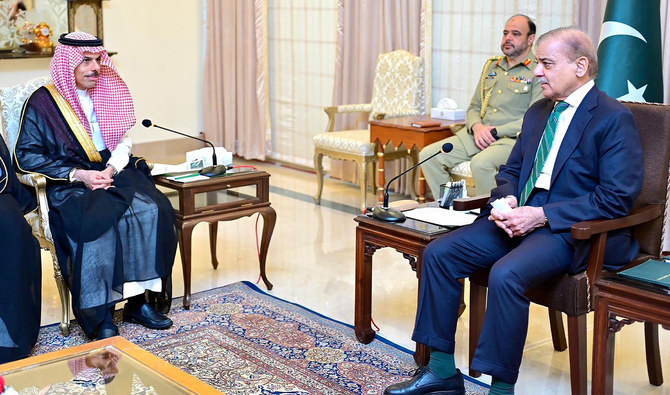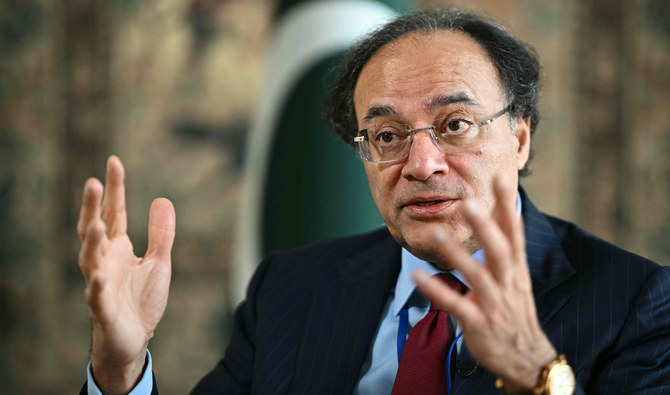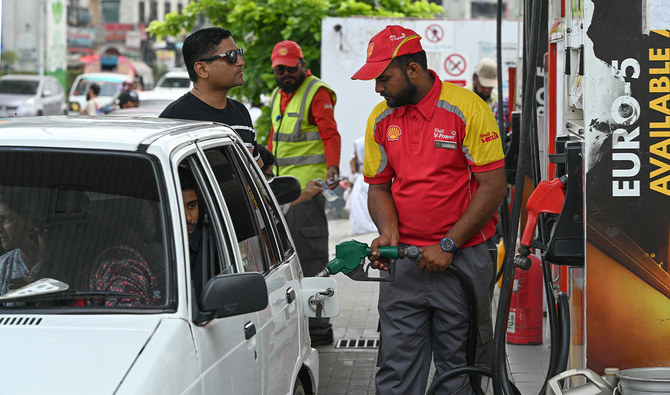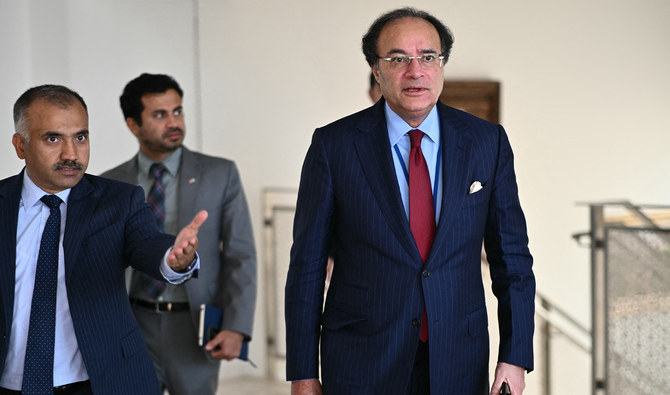ISLAMABAD: After 20 years of military engagement and billions of dollars spent, NATO and the United States still grapple with the same, seemingly intractable conundrum — how to withdraw troops from Afghanistan without abandoning the country to even more mayhem.
An accelerated US drawdown over the past few months, led by the previous US administration, has signaled what may be in store for long-suffering Afghans.
Violence is spiking and the culprits are, well, everyone: the Taliban, the Daesh group, warlords, criminal gangs and corrupt government officials.
Currently, 2,500 US and about 10,000 NATO troops are still in Afghanistan. NATO defense ministers will meet on Wednesday and Thursday to discuss the way forward.
Meanwhile, President Joe Biden is reviewing his predecessor’s 2020 deal with the Taliban, which includes a May 1 deadline for a final US troop withdrawal from the war-ravaged country. In Washington, calls are mounting for the US to delay the final exit or renegotiate the deal to allow the presence of a smaller, intelligence-based American force.
All key players needed for a stable post-war Afghanistan come with heavy baggage.
The Taliban now hold sway over half the country and both sides in the conflict have continued to wage war, even after peace talks between the Taliban and the Kabul government began last year in Qatar.
The Taliban have lately been accused of targeted killings of journalists and civic leaders — charges they deny. But they lack credibility, particularly because they refuse to agree to a cease-fire. There is also no proof they have cut ties with Al-Qaeda militants as required under the Taliban-US deal. A January report by the USTreasury found that they continue to cooperate and that Al-Qaeda is getting stronger.
Some reports from areas under Taliban control speak of heavy-handed enforcement of a strict interpretation of Islamic law: While the Taliban allow girls to go to school, the curriculum for both boys and girls seems mostly focused on religion. There is little evidence of women’s progress in the deeply conservative, rural areas.
Afghan warlords — some accused of war crimes — have been co-opted by international forces since the 2001 collapse of the Taliban regime, amassing power and wealth.
In a vacuum that would follow the withdrawal of foreign troops, activists and Afghans fear the heavily armed warlords would return to another round of fighting, similar to the 1992-1996 bloodletting. At that time, the warlords turned their firepower on each other, killing more than 50,000 people, mostly civilians, and destroying much of the capital, Kabul.
Afghan forces have also been accused of heavy-handedness. In January, a new UN report said that nearly a third of all detainees held in detention centers across Afghanistan say they have suffered some form of torture or ill-treatment. Corruption is rampant and government promises to tackle it, according to a US watchdog, rarely go beyond paper.
The regional affiliate of the Daesh group, which in particular targets the country’s minority Shiites, has grown more brazen and violent, its attacks increasing in frequency and audacity, testing a weak security apparatus.
Despite nearly $1 trillion spent in Afghanistan — of which a lion’s share went on security — lawlessness is rampant. According to the US State Department, crime in Kabul is widespread, with criminals typically working in groups and using deadly force. “Local authorities are generally ineffective in deterring crime,” the State Department said. “Officers openly solicit bribery at all levels of local law enforcement. In some cases, officers carry out crimes themselves.”
Economic benchmarks are no better.
The World Bank said the poverty rate rose from 55% in 2019 to 72% in 2020. Two-thirds of Afghans live on less than $1.90 a day. Unemployment rose in 2020 to 37.9%, from 23.9%, the World Bank said last week.
“This is an absolute disgrace given the billions spent on this country over the last two decades,” Saad Mohsini, owner of Afghanistan’s popular TOLO TV, tweeted in response. “Who will stand up and take responsibility?”
Meanwhile, Afghan youth, activists, minorities and women worry that the freedoms they have won since 2001 — while still fragile — will be lost to a Taliban-shared government, and if not to the Taliban, then to warring warlords.
For the US and NATO, the big concern is national security. Both want guarantees that Afghanistan will not again become a safe haven for terrorist groups as it was both during the Taliban era and when warlords ruled.
Among them is Abdur Rasoul Sayyaf, now a key player in Kabul, whose group brought Al-Qaeda’s Osama bin Laden to Afghanistan from Sudan in May 1996. Sayyaf was the inspiration behind the Philippine terrorist group Abu Sayyaf.
Gulbuddin Hekmatyar, another warlord in Kabul, briefly gave bin Laden a safe haven following the 2001 US-led invasion that ousted the Taliban, who had up to that point sheltered the Al-Qaeda leader. In 2017, Hekmatyar signed a peace agreement with Afghan President Ashraf Ghani and is now a member of the country’s wider peace reconciliation council.
Back in 2012, Human Rights Watch warned NATO that unless it held government forces as well as the Taliban accountable for abuses, the alliance’s “legacy would be a country run by abusive warlords — including the Taliban — and unaccountable security forces,” said Patricia Gossman, associate director for Asia at the New York-based group.
Analysts agree there is no easy solution to Afghanistan’s deteriorating conditions, regardless of whether NATO stays or goes.
“Let’s be very clear: A fragile peace process meant to stabilize the security environment hangs in the balance against the backdrop of a rogue’s gallery of spoilers,” said Michael Kugelman, deputy director of the Asia Program at the Washington-based Wilson Center.
Some say NATO and the US should send a strong message for peace to all sides in Afghanistan’s protracted conflict.
“The US and NATO must be very clear ... that they do not wish more war in Afghanistan, that they want a political settlement between the warring parties and that those leaders who shout for more war, on both sides, are no longer good partners with the international community,” said Torek Farhadi, political analyst and former adviser to the Afghan government.
“Absent a political settlement, Afghanistan is headed for a bitter civil war and potentially the country being fractured in the longer run,” he added.
Concern for Pakistan as NATO faces conundrum in Afghan pullout
https://arab.news/ppe2g
Concern for Pakistan as NATO faces conundrum in Afghan pullout

- In vacuum that would follow withdrawal of foreign troops, Afghans fear Taliban and heavily armed warlords would return to new round of fighting
- Despite nearly $1 trillion spent in Afghanistan, a lion’s share of it on security, lawlessness is rampant and big concern for neighboring Pakistan
Saudi Arabia to invest $5 billion to boost Pakistan’s economy – planning minister

- Ahsan Iqbal says the national economy can reach a $3 trillion mark by 2047 with 9% growth rate
- He informs a summit the government plans to maximize investment from UAE, Kuwait and Qatar
KARACHI: Federal Minister for Planning and Development Ahsan Iqbal announced on Tuesday Saudi Arabia was expected to invest $5 billion in Pakistan, adding the administration in Islamabad was also trying to secure investment from other Gulf states to strengthen the national economy.
Amid economic challenges, Pakistan has been actively trying to attract foreign investment and established the Special Investment Facilitation Council (SIFC), a civil-military hybrid body, last year for the purpose.
The SIFC was created to serve as a single window for all foreign investment activities, offering a simplified and more direct route for international investors interested in various sectors such as mining, agriculture, energy, information technology and defense manufacturing.
The body was tasked to address procedural bottlenecks, accelerate policy reforms and create a more favorable investment climate, with a special focus on Gulf economies.
“Saudi Arabia will soon invest $5 billion in Pakistan and in this regard, Prime Minister Shehbaz Sharif will soon visit Saudi Arabia, followed by an expected visit of the Saudi Crown Prince Mohammed bin Salman to Pakistan,” the Planning Commission of Pakistan quoted the minister as saying in an official statement.
Iqbal issued the statement while speaking at a business summit in Islamabad.
He mentioned that discussions were ongoing with the United Arab Emirates, Kuwait and Qatar to maximize investment in Pakistan.
The planning minister said if Pakistan managed to increase its exports to $100 billion in the next seven to eight years, it would achieve a significant economic takeoff.
He maintained that Pakistan could become a $2 trillion economy by 2047 with 7 percent growth, adding it could also reach a $3 trillion mark by maintaining 9 percent growth.
Pakistan, Saudi Arabia and Uzbekistan ink ‘landmark’ agreement to promote trade, investment

- As per agreement, Uzbekistan’s largest bank and a Pakistani firm will support investors in all three countries
- Partnership to attract foreign investment particularly in key sectors of energy, infrastructure and agriculture
ISLAMABAD: Pakistan, Saudi Arabia and Uzbekistan have signed a “landmark” partnership agreement to boost economic cooperation and create new opportunities for investors in the region, Pakistan’s state-run television reported on Tuesday.
As per the terms of the agreement, Uzbekistan’s largest bank Ansher Capital will work closely with KASB Securities Limited (KASB), a leading Pakistani stock and commodity brokerage firm, to provide financial advisory and corporate finance services to investors in all three countries, the state media said.
Both firms will support investors and traders in Pakistan, Uzbekistan and Saudi Arabia by providing expert guidance on navigating financial markets, the Pakistan Television (PTV) said.
“In a significant development, Uzbekistan, Pakistan, and Saudi Arabia have signed a landmark partnership agreement aimed at promoting investment and trade between the three countries,” PTV said.
“The partnership is expected to expand the market and attract foreign investment, particularly in key sectors such as energy, infrastructure, and agriculture.”
The report said that the agreement is also expected to strengthen trade ties between the three countries, with a focus on increasing trade volumes and promoting economic integration.
“The partnership will enable businesses to tap into new markets and access new investment opportunities, creating jobs and driving economic growth,” PTV said.
Pakistan and Saudi Arabia enjoy strong trade, defense and cultural ties. The Kingdom is home to over 2.7 million Pakistani expatriates and serves as the top destination for remittances to the cash-strapped South Asian country.
Saudi Foreign Minister Prince Faisal bin Farhan arrived in Pakistan last week for a two-day visit aimed at strengthening bilateral economic cooperation and pushing forward previously agreed investment deals. Pakistan has said it pitched investment projects worth $30 billion to Riyadh during Prince Faisal’s visit.
Islamabad has sought trade and economic partnerships with bilateral partners and allies as it seeks to navigate a macroeconomic crisis that has seen its reserves plummet to historic lows and its currency weaken significantly.
Pakistan’s finance minister says new IMF loan agreement targeted for early July

- The quantum and duration of new loan is still not clear, though the government wants at least a three-year program
- Muhammad Aurangzeb says the modalities of the new loan will be thrashed out with an IMF delegation next month
ISLAMABAD: Pakistan’s finance minister Muhammad Aurangzeb said on Tuesday the country planned to discuss the contours of a new loan program with an International Monetary Fund (IMF) delegation next month while hoping to reach a staff-level agreement with the global lender by early July.
Pakistan secured a $3 billion IMF bailout last year to avert a sovereign default and hopes to receive the final tranche later this month. However, the government wants a fresh IMF loan since the country continues to face tough economic challenges and plans to implement structural reforms.
“We are still hoping that we can get into a staff-level agreement by the time June is done or early July so that we can move on,” the finance minister said while addressing a news conference.
He informed he had good discussions with IMF and World Bank officials during the spring meetings held by both international lending organizations in Washington.
Aurangzeb maintained it was not right to say that the IMF was imposing strict conditions on Pakistan since the country needed to carry out reforms on its own to strengthen its economy.
“This is Pakistan’s program which is helped, supported, assisted by the fund,” he said. “This is how we have to see it since this is the way ownership will come.”
He maintained the country’s foreign reserves were increasing and would reach about $10 billion by the end of June this year well before the new IMF program.
“Once the final tranche comes from the IMF, end of this week, we will be over $9 billion,” he told the media. “By the time we end June, we will be anywhere between $9-10 billion, which is going to be equivalent to two months of import cover.”
The finance minister noted the country had made progress since its foreign reserves dipped to nearly $3.4 billion last year.
He said the stock market was also hitting all-time highs and foreign buyers were entering the market.
“The gross domestic product growth is expected to be at 2.6 percent in the current fiscal year,” he said, adding the government was taking steps to attract foreign investment and keep the current account and fiscal deficits within reasonable limits.
“The current account deficit has been reduced to $1 billion after a 74 percent reduction in FY24,” the minister said, adding the inflation was expected to remain at 24 percent during the ongoing fiscal year, while the trade deficit had been reduced to $17 billion following a 24.9 percent decrease.
He said the quantum and duration of the new IMF program was yet not clear, though the government wanted to secure at least a three-year loan package.
Pakistan and IMF have said they are already in discussions for the new loan.
Aurangzeb said structural reforms carried out by the government include increasing the government’s tax revenue-to-GDP ratio to 13 percent to 14 percent in next two or three years from the current level of around 9 percent, reducing losses of state-owned enterprises through their privatization, and better management of the debt-laden energy sector.
With input from Reuters
Pakistan refiners warn $6 bln upgrades at risk due to fuel price deregulation plan

- Regulatory authority proposes oil marketers, refineries be allowed to set prices instead of government
- Refiners demand they be consulted before the implementation of “irrational recommendations”
KARACHI: Pakistan’s plans to deregulate fuel prices could lead refiners to halt planned upgrades worth up to $6 billion and force some refineries to close, some of the country’s top refiners said in a letter to the country’s oil regulator.
Looking to drive down prices for consumers, the South Asian nation’s Oil & Gas Regulatory Authority (OGRA) has proposed that oil marketers and refineries be allowed to set fuel prices, instead of the government setting prices.
As part of the change, OGRA proposed scrapping or reviewing a rule that requires fuel buyers to purchase supply from local refineries, another issue the refiners said could result in “disastrous consequences.”
The refiners — state-run Pakistan Refinery and private domestic refiners Pak Arab Refinery, Attock Refinery, Cinergyco, and National Refinery — said they were already struggling to operate near full capacity and asked that they be consulted before the implementation of “irrational recommendations.”
“The refining sector requires OGRA support through pragmatic and supportive measures, rather than suggesting ways that if implemented would result in their permanent closure,” the refiners told OGRA on Monday in a letter, which was reviewed by Reuters.
The deregulation was aimed at boosting competition and protecting the public interest, OGRA told Reuters in a statement on Tuesday, but did not respond to specific questions on the letter from the refiners. However, it said in an April 17 presentation reviewed by Reuters the potential impact of deregulation on refinery upgrades had to be assessed carefully, calling it a challenge.
“The refineries upgradation will bring in investment of $5 — 6 billion and not only result in cleaner environment friendly fuels but also result in savings of precious foreign exchange of the country,” the refiners wrote in the letter to OGRA.
Pakistan hopes to get new IMF loan by early July, says finance minister

- Pakistan’s current $3 billion financial arrangement with IMF expires in late April
- Islamabad is seeking “bigger,” long-term loan to ensure macroeconomic stability
Pakistan is hoping to reach a staff-level agreement with the International Monetary Fund by June or early July, its finance minister said on Tuesday.
The country’s current $3 billion arrangement with the fund runs out in late-April, which it secured last summer to avert a sovereign default.
Islamabad is seeking a long-term bigger loan to help bring permanence to macroeconomic stability as well as an umbrella under which the country can execute structural reforms.
“We are still hoping that we get a staff-level agreement by June or early July,” Finance Minister Muhammad Aurangzeb told a conference in Islamabad.
He returned from Washington last week after leading a team to attend the IMF and World Bank’s spring meetings. “We had very good discussions in Washington,” he said.
He said he did not know at this stage the volume and tenure of the longer program.










